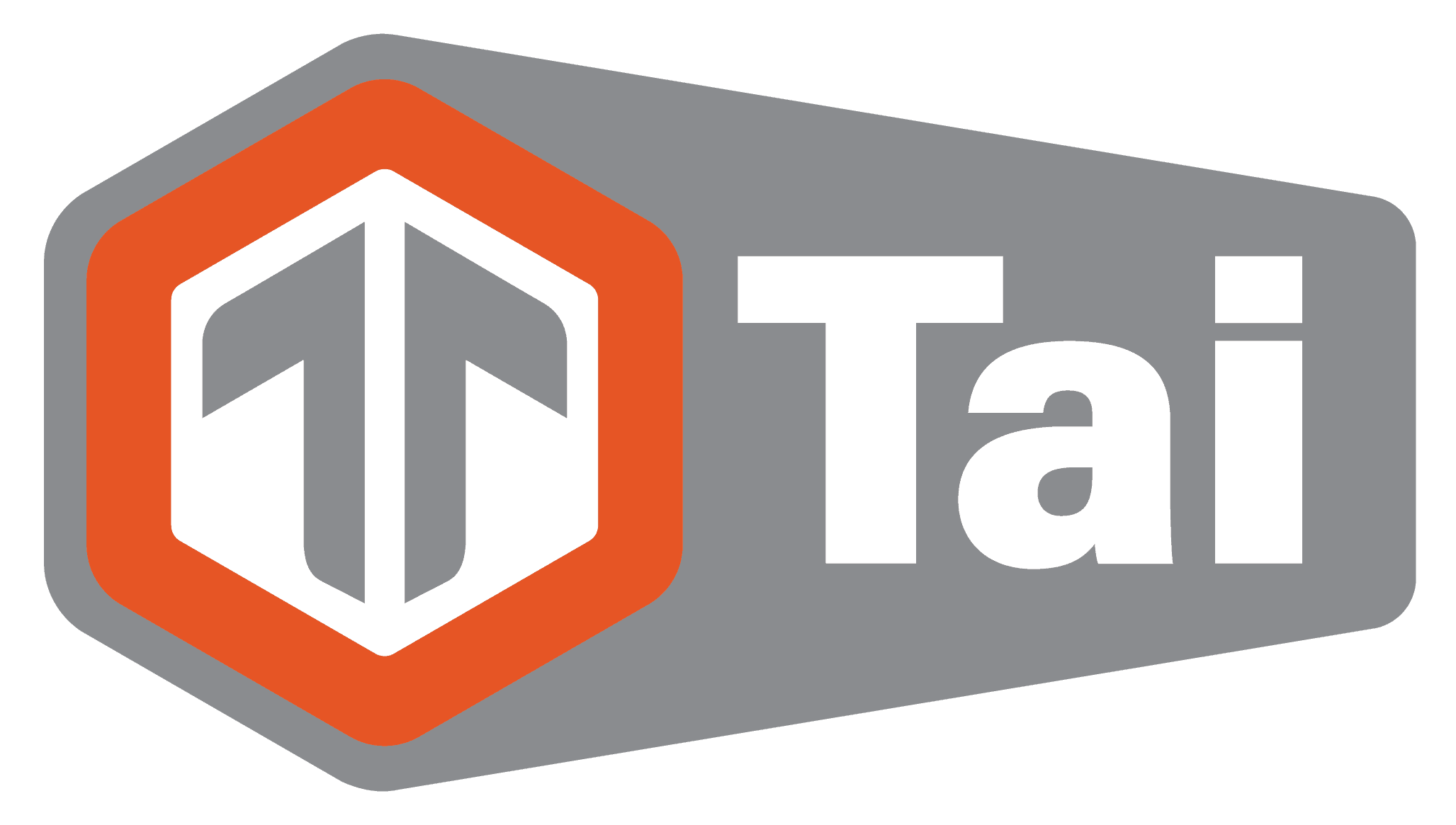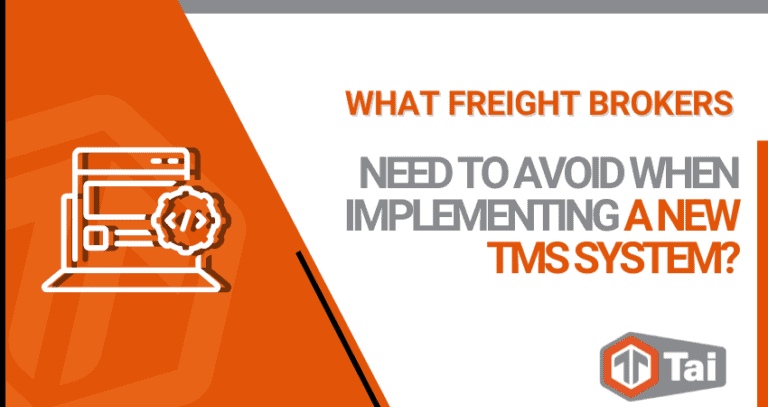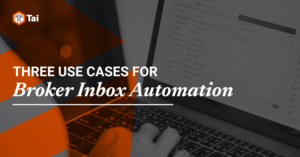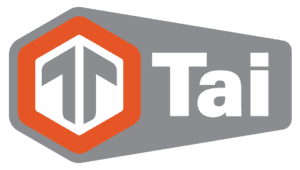When businesses are considering implementing a new Transportation Management System, the company’s success depends on choosing the correct solution and executing it flawlessly.
It cannot be understated that a TMS implementation is a highly complex undertaking. Between routing, rate tables, communication between systems, and more, it touches many business functions, including inventory flow.
The need for freight brokers to implement a new transportation management system (TMS) is more complicated than it previously was. Today’s TMS mirrors companies’ logistics and supply chain platforms, which will drive competitive advantages when done correctly.
The TMS system is a vital component for any freight broker’s business, and the TMS implementation process can be time-consuming. The TMS system enables freight brokers to manage their transportation needs from quoting rates, booking shipments in real-time and through an automated interface.
This article addresses some of the important considerations that need to be made before implementing a new TMS into your IT infrastructure, so you don’t get stuck with costly mistakes or end up missing out on opportunities.
Choosing the Wrong System
A brokerage should devote time and effort to selecting a transportation management system that will provide them a competitive advantage and allow them to expand their business. While there is a wide array of TMS platforms out there, they are not all created equally or suit the needs of every business.
TMS platforms can range from a complex system to a simple TMS with limited functionality. TMS’s are not one size fits all, and each solution will be different for every company; it is essential to explore which type of TMS meets your needs before purchase.
As a freight broker, it is important to choose a TMS that can grow with your future visions. This implies the possibility for the TMS system to scale alongside the freight brokerage, allowing them to take on more shipments without increasing the labor costs.
For this reason, cloud-based TMS systems are typically best for most freight brokers. These TMS platforms have been designed to dynamically scale and provide real-time supply chain visibility, which is a must for freight brokers. Furthermore, the cloud-based TMS solution will typically be much less expensive than older legacy transportation management software solutions available today.
The last thing that freight brokers want from their TMS is to be stuck with an on-premise TMS that will not keep up as the freight brokerage grows. Worse yet, purchasing a new TMS that can’t scale with your business, forcing you to start looking for a new TMS solution.
Forgetting about Data Imports
Another factor that freight brokers need to avoid when looking to implement a new system is not being ready for the TMS.
Freight brokers need to make sure they have their current systems documented and in order before setting up a TMS solution. Freight brokerage companies will have data that needs to be entered into their TMS system, such as customer information, warehouse location details, carrier contact lists, etc.
Many freight brokers have made the mistake of changing their transportation management solutions but forgetting about all the business-critical data left behind on their old system. Any freight brokerage must have access to lane histories, carrier data, and customer data.
The new system needs to be able to allow for data imports from the old TMS system. This will ensure that freight brokers are not losing all their information when they switch to a new TMS and can be more successful in the future. Similarly, the TMS should have the option to import data from any third-party applications currently being used.
Not Having Adequate Training and Onboarding
The TMS will be changing an aspect of the staff’s daily operations, so there needs to be adequate time spent on training for all employees who will use it and then re-training as updates are made, or new features are added.
In their attempt to get everything ready as fast as possible, proper onboarding training is pushed to the side. While there may be some training done, many still make the mistake of keeping it short and not going into detail about how the TMS works.
Without thorough TMS training, it will be hard for employees to know how to get the most use out of their TMS system. Training should be conducted by people who have experience with the new TMS system. This ensures that accurate information from experts can reach all stakeholders that will have to use the system.
On the other end of the spectrum are those that pack in too much information too fast. This could also have a negative effect on TMS implementation, as essential and valuable information can be lost in a sea of too much. That is why it’s important to create training that will contain enough detail but not so much that employees are overwhelmed with information overload.
Freight brokerage companies should make sure to spend the time and effort on training, which includes understanding transportation management software features and how they will be integrated into their daily workflows. This needs to be done gradually and frequently enough for everyone to understand the system. It would also be beneficial to have each training session recorded so that employees can refer back to video if they feel that they need to revisit a specific process.
This step is crucial for freight brokers because neglecting this task can lead to confusion among staff members and even misuse of TMS functionalities. If employees don’t grasp the new TMS system’s primary and more advanced functionalities, they will revert to the old ways of doing things and resist the new tool.
Forgetting About Customer Support
Regardless of the many features and functionalities your new TMS platform might have, it’s still software, and software will always have bugs. As a freight broker, it’s important to understand that the TMS vendor you’ve chosen will need to provide you with excellent customer support for any issues or bugs in your TMS system.
Unfortunately, there have been many cases where TMS deployments take months and even years to set up because they lack the appropriate TMS customer service. TMS software companies that cannot provide customers with timely and adequate TMS support will likely find themselves out of business very quickly.
There are also several benefits that excellent customer support has to offer. Among these, we can include:
- Timely Responses – TMS customers who have TMS support should get a prompt response when they raise an issue.
- Shared Knowledge – TMS vendors can share knowledge and provide their TMS customers with whatever they need to function correctly in the market.
- Troubleshooting Assistance – When you’re experiencing issues, TMS providers should be able to help you fix the TMS, not just tell you what’s wrong.
- Access to Software Developers – The TMS software provider should have TMS developers to help you with any issues their clients might have. Since the clients are using the software the most, they are the likeliest to encounter problems that only developers may be able to answer or resolve. Suffice to say, the support team should have access to the developers.
- Troubleshooting Tips – TMS providers should be able to provide you with troubleshooting tips when they’re unable to resolve an issue.
- Informed TMS Users – TMS vendors should inform their TMS customers about changes being made within their TMS and what is being worked on. They also need to make sure that TMS customers are aware of any TMS upgrades and TMS patches.
- A/B Testing – TMS vendors should be able to provide you with A/B testing for your software so that you can see how they would perform in the market before actually launching them. Greater accuracy means tremendous success.
- Experienced Support Team – When the team understands how to fix your issues with the software, they will feel motivated to help you. You need to ensure that the support team is experienced in using the software and knows what it’s like from a user perspective.
Your freight broker business is designed to operate smoothly with a TMS solution. It’s for this reason why knowledgeable and attentive support staff are critical. When you are looking for transportation management who understands the needs of freight brokers, pay attention to availability and responsiveness. All of these indicate experience, passion, and caring.
As a freight broker, you need to choose your TMS vendor wisely by ensuring that they offer excellent customer support for all TMS issues or bugs in their systems.
Conclusion
A TMS can be an essential tool for freight brokers who are looking to save time and money. However, before making a TMS purchase decision, a broker must know their needs and pain points or what would happen if the TMS becomes impaired due to any reason. Freight brokers will need to research how the TMS will impact their business, how TMS is compatible with the current IT infrastructure, and ensure that TMS has a good return on investment.
For both logistics and supply chain teams, the TMS is a game-changing tool that revolutionizes significant parts of your organization.
TAI Software is a comprehensive TMS platform that fulfills all the needs of freight brokers. 3PLs, freight forwarders, and large shippers can also benefit from it. Our dedicated team of logistics software experts has over 20 years of experience solving business problems for transportation organizations worldwide.
Request a free demo today!










